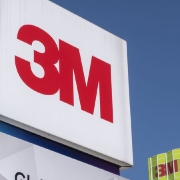3M vs. Commissioner
/in Court cases /by transprice_user3M vs. Commissioner
Jurisdiction
United States, Tax Court and Eighth Circuit
Summary of Facts
The case involves the concept of “blocked income,” where Brazilian law capped royalty rates on IP licenses between a local subsidiary and its foreign parent. The IRS reallocated income despite these legal restrictions.
Key Issues
Whether the IRS can reallocate income classified as blocked due to foreign legal restrictions, challenging the regulatory conditions under Section 482.
Decision and Reasoning
The Tax Court upheld the IRS’s blocked income regulations, with a plurality opinion citing Chevron deference and procedural compliance. The decision included various concurring and dissenting opinions.
Importance and Implications
This case highlights the challenges in dealing with blocked income and foreign legal restrictions. The outcome may affect how multinational corporations handle similar situations and the IRS’s authority in reallocating income.
Medtronic vs. Commissioner
/in Court cases /by transprice_userMedtronic vs. Commissioner
Jurisdiction
United States, Tax Court and Eighth Circuit
Summary of Facts
Medtronic’s case revolves around determining the appropriate arm’s-length royalty for the U.S. subsidiary’s license of intellectual property (IP) necessary to manufacture implantable medical devices. The dispute primarily concerns the best transfer pricing method to use.
Key Issues
The IRS favors the Transactional Net Margin method (TNMM), while Medtronic supports the Comparable Uncontrolled Price (CUP) method. The case has seen multiple trials and appeals, with significant adjustments proposed to the methods used.
Decision and Reasoning
The Tax Court initially sided with Medtronic but was vacated by the Eighth Circuit. On remand, a hybrid “unspecified method” was proposed, combining elements of both CPM and CUT. Both parties have appealed again.
Importance and Implications
This case underscores the complexities of transfer pricing methods and the impact of regulatory compliance on multinational corporations. The outcome could influence future IRS audits and transfer pricing litigation strategies.
Sweden v. AB (Trademark Licensing to Corp)
/in Court cases /by transprice_userSweden v. AB (Trademark Licensing to Corp)
Jurisdiction
Sweden, County Administrative Court of Gothenburg
Summary of Facts
This case involved the deductibility of a license fee paid by a Swedish company (AB) to a Maltese group company (Corp) for the use of a trademark. The Swedish Tax Agency (STA) argued that Corp, despite being the legal owner of the trademark, did not perform any development, enhancement, maintenance, protection, or exploitation (DEMPE) functions and thus was not entitled to license fees from AB.
Key Issues
- Deductibility of License Fees: Whether the license fees paid by AB to Corp were deductible given that Corp did not perform DEMPE functions.
- Compensating Adjustment: Whether the initial payment for the sale of the business concept by AB to Corp could be offset against the license fees paid.
Decision and Reasoning
The County Administrative Court of Gothenburg ruled that since Corp did not perform any DEMPE functions, it would not be arm’s-length practice for AB to pay license fees for the use of the trademark. The court based its ruling on the OECD Transfer Pricing Guidelines, specifically sections 6.32, 6.40-42, and 6.47-48. The court also determined that a compensating adjustment was not reasonable, as the initial sale was priced appropriately and future license fees were not directly contingent on future license fees from subsidiaries.
Importance and Implications
- Transfer Pricing Challenges: This case highlights the challenges multinational enterprises (MNEs) face in structuring IP-related transactions, especially concerning the attribution of intangible-related profits post-BEPS (Base Erosion and Profit Shifting).
- DEMPE Functions and Economic Substance: The ruling emphasizes that legal ownership alone is insufficient for entitlement to license fees; the economic substance and performance of DEMPE functions are crucial.
- Implications for MNEs: The case implies that Swedish entities within MNE groups may face disallowed deductions for license fees paid to foreign group companies owning IP unless proper economic substance and DEMPE functions can be substantiated. MNEs must be prepared to defend their transfer pricing positions with detailed value chain analyses and thorough documentation of DEMPE functions.
Broader Implications:
- Legal Ownership vs. Economic Substance: The ruling reiterates that legal ownership of IP must be supported by substantial economic activities (DEMPE functions) to justify license fees.
- Transfer Pricing Compliance: MNEs should ensure their transfer pricing arrangements comply with the arm’s-length principle by adequately documenting the performance of DEMPE functions.
- Future Litigation: The case has been appealed to the Administrative Court of Appeal, indicating ongoing scrutiny and potential for further legal clarification on these issues.
Conclusion
This ruling from the County Administrative Court of Gothenburg underscores the importance of aligning legal ownership with economic substance in transfer pricing arrangements involving intangible assets. MNEs should carefully document and justify their transfer pricing strategies to withstand scrutiny from tax authorities.
Volotea v. Commission, and easyJet v. Commission
/in Court cases /by transprice_userVolotea v. Commission, and easyJet v. Commission
Jurisdiction
European Union, Court of Justice of the European Union (CJEU)
Summary of Facts
The CJEU annulled the European Commission’s decision that Volotea and easyJet received illegal state aid through Italian regional law funding.
Key Issues
Whether the state aid given to airlines for air route development constituted an unfair advantage.
Decision and Reasoning
The CJEU ruled that the Commission had failed to prove that the transactions gave the airlines an advantage, thereby annulling the decision.
Importance and Implications
This case highlights the complexities of state aid regulations and the need for clear evidence to support claims of illegal aid.
Norway v. ConocoPhillips Skandinavia
/in Court cases /by transprice_userNorway v. ConocoPhillips Skandinavia
Jurisdiction
Norway, Court of Appeal
Summary of Facts
The case involved a loan agreement between ConocoPhillips Norway and its subsidiary, with the tax authority challenging the interest rate as not being at arm’s length.
Key Issues
Whether the interest rate on the loan followed the arm’s length principle.
Decision and Reasoning
The court ruled in favor of the tax authority, stating that the interest rate should have been lower and aligned with the arm’s length standard.
Importance and Implications
This case highlights the scrutiny of inter-company financial arrangements and the importance of adhering to market-based interest rates.
India v. Olympus Medical Systems India
/in Court cases /by transprice_userIndia v. Olympus Medical Systems India
Jurisdiction
India, Income Tax Appellate Tribunal (ITAT)
Summary of Facts
Olympus Medical Systems India faced a transfer pricing audit due to financial losses, with the tax authority demanding audited financials of affiliated entities and using the residual profit split method.
Key Issues
The appropriateness of the residual profit split method and the requirement for audited financials of associated companies.
Decision and Reasoning
The ITAT ruled that Olympus India should submit audited financials of its associated companies or accept the tax authority’s use of the residual profit split method.
Importance and Implications
This case emphasizes the need for transparency in financial reporting and the importance of using appropriate transfer pricing methods.
India v. Kellogg India
/in Court cases /by transprice_userIndia v. Kellogg India
Jurisdiction
India, Income Tax Appellate Tribunal (ITAT)
Summary of Facts
The ITAT ruled in favor of Kellogg India, which had used the AE as the tested party for benchmarking the import of Pringles products, despite the tax authorities’ preference for the Indian entity as the tested party.
Key Issues
The appropriateness of the transactional net margin method (TNMM) versus using the Indian entity as the tested party.
Decision and Reasoning
The ITAT concluded that the AE should be the tested party, aligning with Kellogg India’s approach and ruling that no adjustment to the arm’s length price was needed.
Importance and Implications
This decision supports the use of appropriate transfer pricing methods and the importance of selecting the correct tested party in benchmarking analyses.
HM Revenue and Customs v. BlackRock
/in Court cases /by transprice_userHM Revenue and Customs v. BlackRock
Jurisdiction
United Kingdom, Upper Tribunal (UT)
Summary of Facts
HMRC disputed BlackRock’s inter-company loan arrangements following its acquisition of Barclays Global Investors, challenging the arm’s length nature of the loan interest rates.
Key Issues
Whether the interest rates on inter-company loans were compliant with the arm’s length principle.
Decision and Reasoning
The UT ruled in favor of HMRC, confirming the denial of shareholder loan interest deductions involving $4 billion in loans.
Importance and Implications
This case underscores the importance of ensuring that inter-company financial arrangements are consistent with the arm’s length standard to avoid tax adjustments.
France v. ST Dupont
/in Court cases /by transprice_userFrance v. ST Dupont
Jurisdiction
France, French Tax Authority (le fisc)
Summary of Facts
ST Dupont faced pricing adjustments following an audit, with allegations that the prices at which it sold merchandise to its Hong Kong subsidiary were below the arm’s length level.
Key Issues
The investigation focused on whether the royalty rates and transfer prices between ST Dupont and its subsidiary were compliant with the arm’s length principle.
Decision and Reasoning
The Paris Administrative Court of Appeal upheld the tax adjustments, dismissing ST Dupont’s appeal.
Importance and Implications
This case highlights the stringent enforcement of transfer pricing rules by French authorities and the importance of aligning intra-group transactions with market rates.
France v. McDonald’s France
/in Court cases /by transprice_userFrance v. McDonald’s France
Jurisdiction
France, French Tax Authority (le fisc)
Summary of Facts
McDonald’s agreed to pay €1.25 billion ($1.31 billion) following an investigation into its transfer pricing arrangements, marking one of the largest tax settlements in French history.
Key Issues
The investigation revealed that McDonald’s shifted profits abroad through increased royalties, avoiding substantial tax payments in France.
Decision and Reasoning
The settlement included a public interest fine and back taxes, emphasizing the importance of financial justice and compliance with local tax laws.
Importance and Implications
This case reinforces the need for multinational corporations to maintain transparent and compliant transfer pricing practices to avoid significant penalties.
Fiat Chrysler Finance Europe v. European Commission
/in Court cases /by transprice_userFiat Chrysler Finance Europe v. European Commission
Jurisdiction
European Union, Court of Justice of the European Union (CJEU)
Summary of Facts
The European Commission concluded that Luxembourg provided illegal state aid to Fiat Chrysler Finance Europe by approving an advance transfer pricing arrangement that did not comply with the arm’s length principle.
Key Issues
The case focused on whether the Commission’s interpretation of the arm’s length principle as an autonomous EU law principle was correct.
Decision and Reasoning
The CJEU annulled the Commission’s original judgment, stating that the Commission should rely on the national tax law of the member state when deciding matters involving state aid.
Importance and Implications
This ruling potentially allows member states to develop their own transfer pricing rules, limiting the Commission’s oversight on state aid cases involving transfer pricing.
Australia v. Rio Tinto
/in Court cases /by transprice_userAustralia v. Rio Tinto
Jurisdiction
Australia, Australian Taxation Office (ATO)
Summary of Facts
Rio Tinto agreed to pay A$613 million ($424 million) to the ATO following allegations of profit-shifting to its Singapore marketing center. This settlement is in addition to an already paid A$378 million, totaling nearly A$1 billion in tax.
Key Issues
The case focused on whether Rio Tinto’s transfer pricing practices for intra-group dividend financing were in compliance with Australian tax laws.
Decision and Reasoning
The settlement resolved years of disputes, with Rio Tinto committing to ensure future profits from Australian-owned commodities are taxed in Australia.
Importance and Implications
This case is significant as it represents one of the largest tax settlements in Australian history, reinforcing the ATO’s stance on aggressive tax planning and profit shifting by multinational corporations.
Denmark v. Maersk Oil and Gas
/in Court cases /by transprice_userDenmark v. Maersk Oil and Gas
Jurisdiction
Denmark, Danish Tax Agency (SKAT)
Summary of Facts
Maersk Oil and Gas faced allegations of using an aggressive transfer pricing arrangement to report losses despite high profitability. The dispute involved a know-how license agreement with subsidiaries in Algeria and Qatar, where the parent company received a 1.7% royalty rate.
Key Issues
The main issue was whether the transactions were at arm’s length, as the Danish courts initially ruled against Maersk’s pricing arrangement.
Decision and Reasoning
The Danish courts required the case to be reconsidered by the tax administration, emphasizing that the transactions did not reflect the price independent parties would set.
Importance and Implications
The case highlights the aggressive stance of Danish tax authorities on transfer pricing and the importance of ensuring that intra-group transactions comply with the arm’s length principle.

KRESTON MDM Revizija | Starine Novaka 23
(Business Garden), 11000 Beograd
tel: +381 (11) 323 4377; +381 (11) 323 8095
E-mail: office@krestonmdm.com
GPS: 44.81074869696085, 20.477566161414245

















